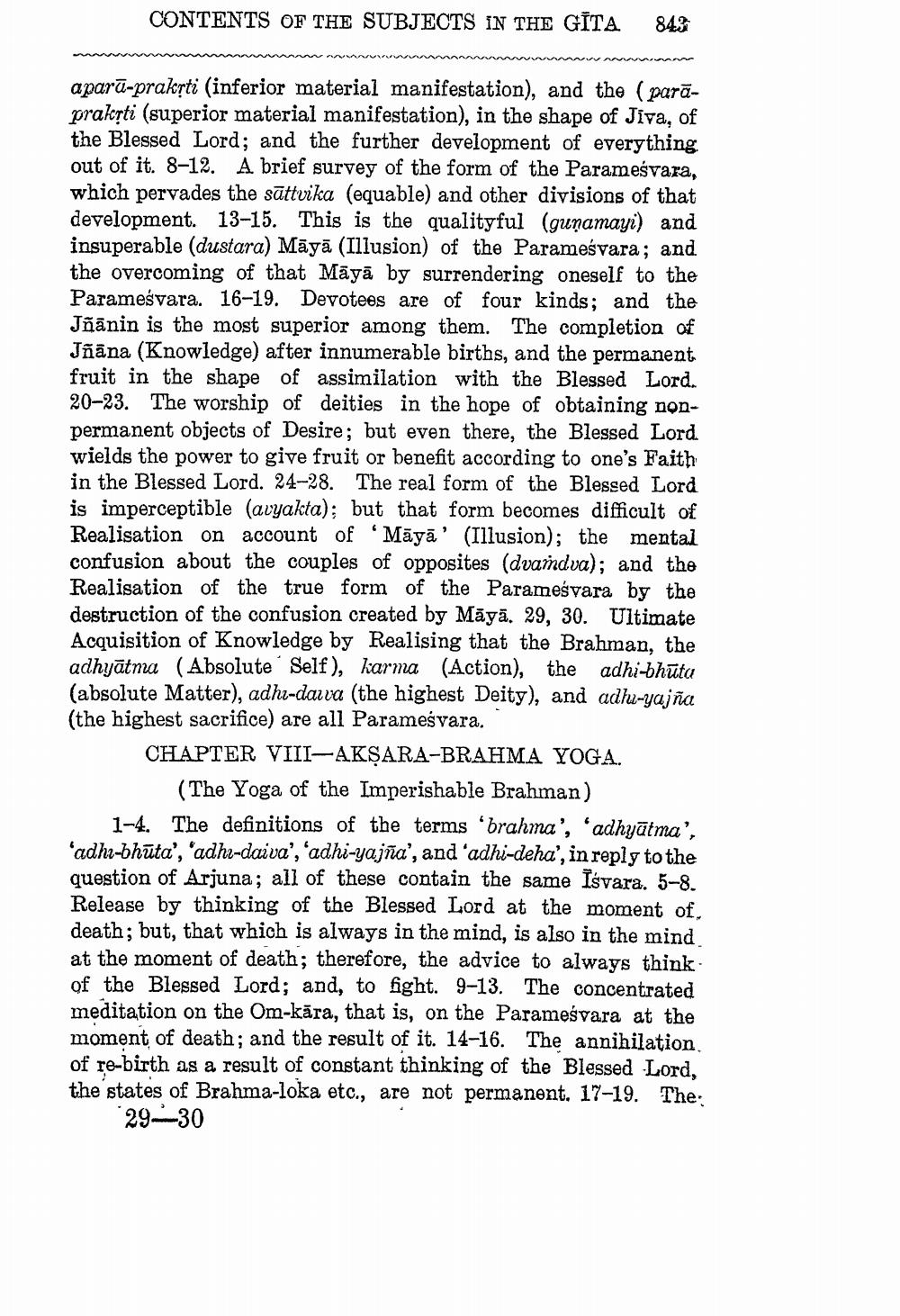________________
CONTENTS OF THE SUBJECTS IN THE GĪTA.
843
aparū-prakrti (inferior material manifestation), and the (parāpraksti (superior material manifestation), in the shape of Jiva, of the Blessed Lord; and the further development of everything out of it. 8-12. A brief survey of the form of the Parameśvara, which pervades the sättvika (equable) and other divisions of that development. 13-15. This is the qualityful (gunamayi) and insuperable (dustara) Māyā (Illusion) of the Parameśvara; and the overcoming of that Māyā by surrendering oneself to the Parameśvara. 16-19. Devotees are of four kinds; and the Jõānin is the most superior among them. The completion of Jõāna (Knowledge) after innumerable births, and the permanent fruit in the shape of assimilation with the Blessed Lord. 20–23. The worship of deities in the hope of obtaining nonpermanent objects of Desire; but even there, the Blessed Lord. wields the power to give fruit or benefit according to one's Faith in the Blessed Lord. 24-28. The real form of the Blessed Lord is imperceptible (avyakta): but that form becomes difficult of Realisation on account of ‘Māyā' (Illusion); the mental confusion about the couples of opposites (dvandva); and the Realisation of the true form of the Parameśvara by the destruction of the confusion created by Māyā. 29, 30. Ultimate Acquisition of Knowledge by Realising that the Brahman, the adhuātma (Absolute Self), karma (Action), the adhi-bhūta (absolute Matter), adhi-daiva (the highest Deity), and adhu-yajña (the highest sacrifice) are all Parameśvara.
CHAPTER VIII-AKŞARA-BRAHMA YOGA.
(The Yoga of the Imperishable Brahman) 1-4. The definitions of the terms 'brahma', 'adhyütma', 'adh-bhūta', 'adhe-daiva','adhi-yajña', and 'adhi-deha', in reply to the question of Arjuna; all of these contain the same Iśvara. 5-8. Release by thinking of the Blessed Lord at the moment of death; but, that which is always in the mind, is also in the mind at the moment of death; therefore, the advice to always think of the Blessed Lord; and, to fight. 9-13. The concentrated meditation on the Om-kāra, that is, on the Parameśvara at the moment of death; and the result of it. 14–16. The annihilation of re-birth as a result of constant thinking of the Blessed Lord, the states of Brahma-loka etc., are not permanent, 17-19. The:
29.30




